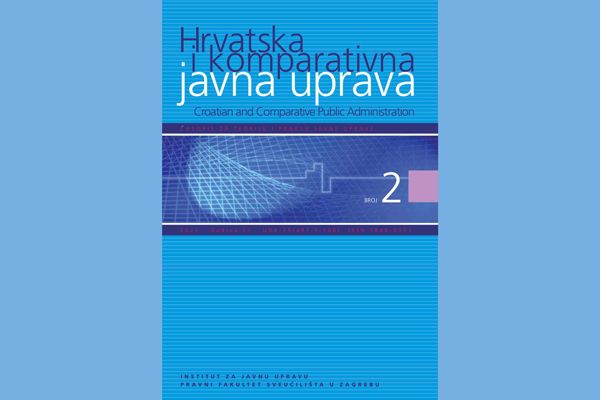Notifications list
How Analysis Should Save Croatia: Evidence-based Policy Making as the Goal of Croatian Public Policies
Published: 14.11.2022.

Marko Kovačić is the author of the paper How Analysis Should Save Croatia: Evidence-based Policy Making as the Goal of Croatian Public Policies. The paper is published in the journal “Croatian and Comparative Public Administration“, 22 (3).
Evidence-based policy making is a kind of standard in contemporary public policy making. This prescriptivist approach, which at its core inherits the rational tradition of policy analysis, is, however, rather contradictory. While in practice it is almost ubiquitous and unquestionable, academic discussions on the justification and expediency of evidence-based policy making (EBPM) are very present and varied. The literature on evidence-based policy making focuses on defining knowledge, classifying and determining evidence, and analysing the actors that could conduct evidence-based policy making, but all of these academic debates are predominantly theoretical in nature. Empirical studies that would help resolve doubts about the nature of knowledge, the type of evidence, and the modus of cooperation between actors within the evidence-based policy-making framework are very rare. This article aims to contribute to the public policy literature through an empirical analysis of evidence-based policy making. Focusing on the analysis of the subcategories of the EBPM in 11 Croatian public policies, the article seeks to answer a very simple but hitherto unexplored question - what is evidence-based policy making in Croatia? By using qualitative content analysis and extrapolating 13 subcategories of evidence-based policy making, the text deconstructs the elements of this approach in the Croatian context and concludes that although numerically prevalent, evidence-based policy making is a declarative rather than actual principle in Croatian public policy strategies. Although the conducted analysis is not comprehensive, it certainly indicates some of the tendencies in the creation of Croatian public policies and as such can serve as a guideline for actors in future policy-making processes.
The paper is available here.
